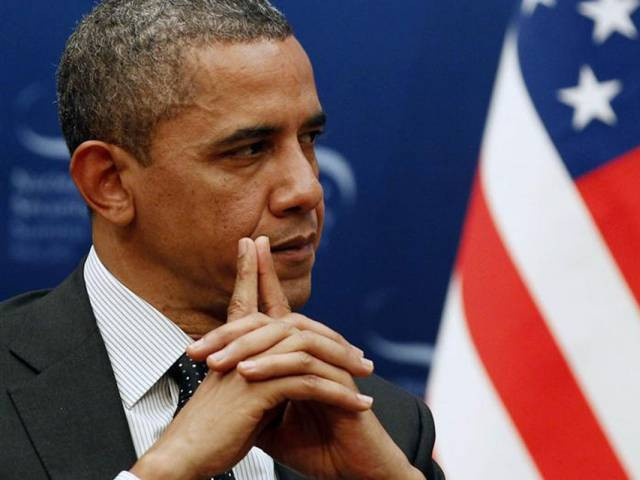Drone strike fallout: Hopes for peace deal swiftly fading, says Obama
Obama acknowledged that he was never going to find a willing negotiating partner at the helm of the extremist group

PHOTO: REUTERS
Speaking to reporters in Japan – where he is meeting with other G7 leaders – the US president warned that the insurgent group will continue killing in Afghanistan.
"We anticipate the Taliban will continue an agenda of violence," he said, adding that he doubted they will come to the table ‘anytime soon’.
Obama was speaking the day after the militants named Haibatullah Akhundzada as their new leader. Analysts have said it is unclear if Akhundzada, who faces the enormous challenge of unifying the increasingly fragmented militant movement, will emulate his former boss in shunning peace talks with the Afghan government.
Obama acknowledged that he was never going to find a willing negotiating partner at the helm of the extremist group. "I was not expecting a liberal democrat to be appointed," he told reporters.

"My hope, although not my expectation, is that there comes a point where the Taliban realise what they need to be doing” and start getting into a dialogue with the government, he said. “I am doubtful that it will be happening anytime soon.”
The Taliban has made no official statement on the future of peace negotiations since announcing Akhundzada's leadership. But Obama's comments were reinforced by a senior Taliban source speaking to AFP in Pakistan, where Mansoor was killed in the strike Saturday, who said there would be no shift in the militants' stance.
“We consider NATO and the US troops as invaders and our resistance movement will continue,” the source said Wednesday, after Akhundzada’s leadership was announced.
“The drone strike against (Mansoor) has proved that the US is not sincere in bringing peace in Afghanistan, so peace talks at any level will remain suspended till the new decision by the leadership council.”
In Afghanistan, an official with the High Peace Council was cautious on the future of talks, saying Akhundzada "may not be interested in political dialogue at least in the short term” but vowing the council will continue its "endeavours for peace”.
President Ashraf Ghani was more hawkish, tweeting Thursday: “Taliban groups have yet another chance to end violence, lay their arms and start normal life. Or they'll face the same fate as their leadership.”
Analysts have told AFP that even if he favours peace talks, Akhundzada would be unlikely to proceed without consensus from his supreme council.
Published in The Express Tribune, May 27th, 2016.



















COMMENTS
Comments are moderated and generally will be posted if they are on-topic and not abusive.
For more information, please see our Comments FAQ